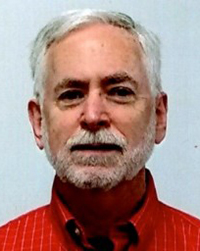Track 4: Digital Connections: Observational Research to Healthcare Quality Assessment
 Data to Information: One Common Model to Rule them All.
Data to Information: One Common Model to Rule them All.
Track Sessions
Session 1: July 13 | 1:45 – 3:00 PM ET
Observational Medical Outcomes Partnership (OMOP): A Common Model for Measuring Quality and Performing Research
Session 2: July 13 | 4:15 -5:15 PM ET
Highlighting Large Scale OMOP Projects, Implementations and Their Successions
Session 3: July 14 | 12:05 -1:35 PM ET
FHIR to OMOP
Session 4: July 14 | 3:40 – 5:00 PM ET
The Potential for Quality Measurement for OMOP
Session 5: July 15 | 12:15 – 1:30 PM ET
Where do we go From Here and how do we get to the Promised Land?
Track Leads
 Floyd Eisenberg, MD
Floyd Eisenberg, MD
President, iParsimony LLC
Dr. Eisenberg is a health information technology consultant. He received his undergraduate degree at Albright College, medical training at Pennsylvania State University, internal medicine residency at Abington Memorial Hospital, Infectious Disease fellowship at Temple University, and received a Master of Public Health degree from Medical College of Wisconsin. He is Board Certified in Internal Medicine and Infectious Diseases and an elected Fellow of the American College of Physicians. His career began with the clinical practice of Infectious Diseases followed by serving as a medical director with focus on quality measurement at Independence Blue Cross and work with Siemens Medical Solutions Health Services in EHR development leading to more detailed focus on electronic clinical quality measurement at National Quality Forum. Since then, he has been a consultant focusing on standards for clinical quality measurement and reporting and clinical decision support as well as their implementation. He is currently an elected co-chair of two HL7 Workgroups, Clinical Quality Information (CQI) addressing measurement standards and Cross-Group Projects addressing broadly focused standards such as US Core. He is also the elected Treasurer of HL7 International and active as co-chair of two HL7 re-envisioning task groups (ROI and Focus). Some current activities include standards support for CMS quality measurement initiatives, SME support for a CDC project expressing clinical opioid prescribing guidelines, and SME support for the Association of Immunization Registries of American (AIRA) and HIMSS Immunization Integration Program (IIP).
 Christopher Chute, MD
Christopher Chute, MD
Bloomberg Distinguished Professor of Health Informatics, Professor of Medicine, Public Health, and Nursing, Johns Hopkins University
Chief Research Information Officer, Johns Hopkins Medicine
Dr. Chute is the Bloomberg Distinguished Professor of Health Informatics, Professor of Medicine, Public Health, and Nursing at Johns Hopkins University, and Chief Research Information Officer for Johns Hopkins Medicine. He received his undergraduate and medical training at Brown University, internal medicine residency at Dartmouth, and doctoral training in Epidemiology and Biostatistics at Harvard. He is Board Certified in Internal Medicine and Clinical Informatics, and an elected Fellow of the American College of Physicians, the American College of Epidemiology, HL7, the American Medical Informatics Association, and the American College of Medical Informatics (ACMI), as well as a Founding Fellow of the International Academy of Health Sciences Informatics; he was president of ACMI through 2018. His career has focused on how we can represent clinical information to support analyses and inferencing, including comparative effectiveness analyses, decision support, best evidence discovery, and translational research. He has had a deep interest in semantic consistency, harmonized information models, and ontology. His current research focuses on translating basic science information to clinical practice, and how we classify dysfunctional phenotypes (disease). He became founding Chair of Biomedical Informatics at Mayo Clinic in 1988, retiring from Mayo in 2014, where he remains an emeritus Professor of Biomedical Informatics. He is presently PI on a spectrum of high-profile informatics grants from NIH spanning translational science. He has been active on many HIT standards efforts and chaired ISO Technical Committee 215 on Health Informatics and the World Health Organization (WHO) International Classification of Disease Revision (ICD-11).

